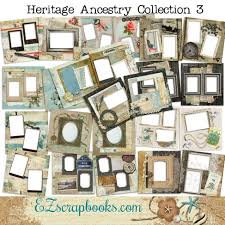Exploring the Rich Tapestry of Heritage Ancestry: Unraveling Our Roots
The Importance of Heritage Ancestry in Understanding Our Roots
Heritage ancestry is a fascinating journey into the past that allows individuals to connect with their roots, understand their cultural identity, and appreciate the rich tapestry of their family history. Exploring one’s heritage ancestry goes beyond mere curiosity; it provides valuable insights into the traditions, values, and experiences that have shaped who we are today.
Understanding our heritage ancestry is like unraveling a complex puzzle that reveals the stories of our ancestors, their struggles, triumphs, and contributions to society. By delving into our family’s past, we gain a deeper appreciation for the challenges they faced and the legacies they left behind.
Heritage ancestry also plays a crucial role in fostering a sense of belonging and connection to our roots. It allows us to trace our lineage back through generations, creating a sense of continuity and shared history with those who came before us. This connection to our heritage can instill pride in our cultural background and provide a strong foundation for personal identity.
Moreover, exploring heritage ancestry can have profound emotional and psychological benefits. Learning about the resilience and perseverance of our ancestors can inspire us to overcome challenges in our own lives. It can also help us develop empathy and understanding for others by recognizing the diverse backgrounds that make up our collective human experience.
In today’s fast-paced world characterized by rapid change and globalization, heritage ancestry serves as an anchor that grounds us in tradition and history. By preserving and celebrating our cultural heritage, we honor the sacrifices and achievements of those who came before us while paving the way for future generations to carry on their legacy.
Ultimately, heritage ancestry is not just about studying the past; it is about embracing where we come from and using that knowledge to shape our present and future. By exploring our roots with curiosity and respect, we can gain a deeper appreciation for the diversity of human experience and celebrate the unique stories that make each of us who we are.
Understanding Heritage and Ancestry: Common Questions Answered
- What is the meaning of heritage ancestors?
- Is heritage and ancestry the same thing?
- What nationality is the last name heritage?
- Which is better MyHeritage or ancestry?
What is the meaning of heritage ancestors?
The term “heritage ancestors” refers to the individuals in our family lineage who have passed down a legacy of traditions, values, and cultural identity through generations. These ancestors play a significant role in shaping our sense of belonging and connection to our roots. By understanding and honoring our heritage ancestors, we gain insight into the experiences and contributions that have influenced our identity and worldview. Embracing our heritage ancestors allows us to appreciate the rich tapestry of our family history and carry forward their stories with pride and reverence.
Is heritage and ancestry the same thing?
The distinction between heritage and ancestry lies in their scope and focus. While ancestry typically refers to tracing one’s lineage and biological descent through genealogical research, heritage encompasses a broader range of cultural, historical, and familial elements that contribute to one’s identity. Ancestry delves into the specific individuals and family connections that make up a person’s family tree, while heritage encompasses the traditions, values, customs, and experiences passed down through generations that shape an individual’s cultural background. In essence, ancestry is a part of one’s heritage, but heritage extends beyond lineage to encompass a more comprehensive understanding of one’s roots and identity.
What nationality is the last name heritage?
The question of what nationality a last name heritage belongs to is a common inquiry among individuals exploring their heritage ancestry. While surnames can sometimes provide clues about a person’s ethnic background or cultural origins, it is essential to approach this question with a nuanced understanding. Surnames can be influenced by various factors such as migration, intermarriage, and historical events, making it challenging to pinpoint a single nationality associated with a particular last name. Therefore, delving deeper into genealogical research and considering broader historical contexts can offer a more comprehensive understanding of the complexities behind surname origins and their connection to diverse heritages.
Which is better MyHeritage or ancestry?
When comparing MyHeritage and Ancestry, the choice ultimately depends on individual preferences and specific research needs. MyHeritage is known for its international focus and innovative DNA testing features, making it a popular choice for those seeking to connect with relatives around the world. On the other hand, Ancestry is renowned for its vast database of historical records and robust family tree-building tools, appealing to those interested in in-depth genealogical research. Both platforms offer unique strengths and resources that can enhance the exploration of heritage ancestry, so it’s advisable to consider factors such as personal goals, budget, and desired features when deciding between MyHeritage and Ancestry.

